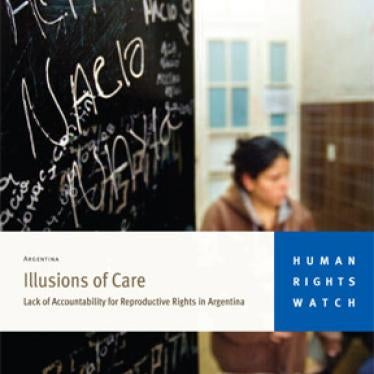Voices from across the political spectrum condemned the Missouri Senate candidate for Senate, Todd Akin, for his recent offensive and scientifically inaccurate reasoning to deny rape survivors’ access to abortion. Akin said women’s bodies “shut down” and prevent them from becoming pregnant from “legitimate rape” — a term loaded with skepticism and derision toward survivors of sexual violence.
It is reassuring to see Akin’s remarks thoroughly rejected. This groundswell of disapproval, however, stands in stark contrast to a broader casual acceptance of falsehoods in matters of reproductive health care.
Many of those now calling for Akin to abandon his Senate bid have promoted outright lies in the service of an anti-abortion agenda. These falsehoods have permeated policies at the state and federal levels, to the detriment of women’s health across the U.S.
Arguments based on spurious medical information have been used to block access to emergency contraception, including after rape. Opponents of reproductive rights have argued that emergency contraception, as defined by the National Institutes of Health, constitutes a medical abortion — though it acts to prevent pregnancy in the first place. Yet arguments like these helped fuel a campaign that kept emergency contraception from being offered over the counter to American women until 2006. Against the Food and Drug Administration’s recommendation, the Obama administration has maintained the ban for girls under 17.
In addition, many state governments have mandated clinic personnel to lie to women seeking abortions. Five states, according to the Guttmacher Institute, require that women be told that abortion is linked to an increased risk of breast cancer — discredited by multiple scientific studies. Five states also require abortion providers to inaccurately portray the effect of abortion on future fertility.
These lies, which can frighten women and keep them from making informed decisions about their pregnancies, are supplemented by half truths. Eight states that require giving women seeking abortion information on the psychological consequences mandate disclosure of only negative information.
Meanwhile, anti-abortion advocates have stifled efforts to ensure that women and girls are not misled by false information. So-called crisis pregnancy centers, which typically represent anti-abortion interests, now receive millions of dollars in federal funds, though they deceive women who come to them seeking help. Twenty out of 23 federally funded crisis pregnancy centers contacted during Rep. Henry Waxman’s 2006 study, provided false and misleading information about the health effects of abortion.
In an effort to counter this misinformation, Baltimore passed a law requiring these centers to post signs saying that they did not provide or make referral for abortion or birth control services. Similar laws have been passed in Austin, New York City, San Francisco and Montgomery County, Md. Such laws protect women’s rights to access accurate information and to make fully informed decisions consistent with their right to privacy, bodily integrity and life.
So far, though, the courts have given anti-abortion groups a free pass, blocking the New York, Montgomery County and Baltimore laws. In June, two out of three judges on a panel of the 4th Circuit Court of Appeals ruled against Baltimore, saying that free speech protections prevented the city from compelling the centers to disclose the limited nature of their services.
The dissenting judge wrote that the trial court’s decision was “indefensible,” arguing that the court had not given the city adequate opportunity to show that the law targeted only commercial speech, which the government has more power to regulate than political speech. Fortunately, the full appeals court has decided to rehear the case this December.
What is at stake in each of these situations is a basic question: Do women deserve accurate medical information? If the question were posed in relation to heart disease, there would be no question. It should be the same with abortion. There is no place for propagating falsehoods when the facts are plain. The outrage over Akin’s comments is warranted — all the more so when views like his become public policy.







